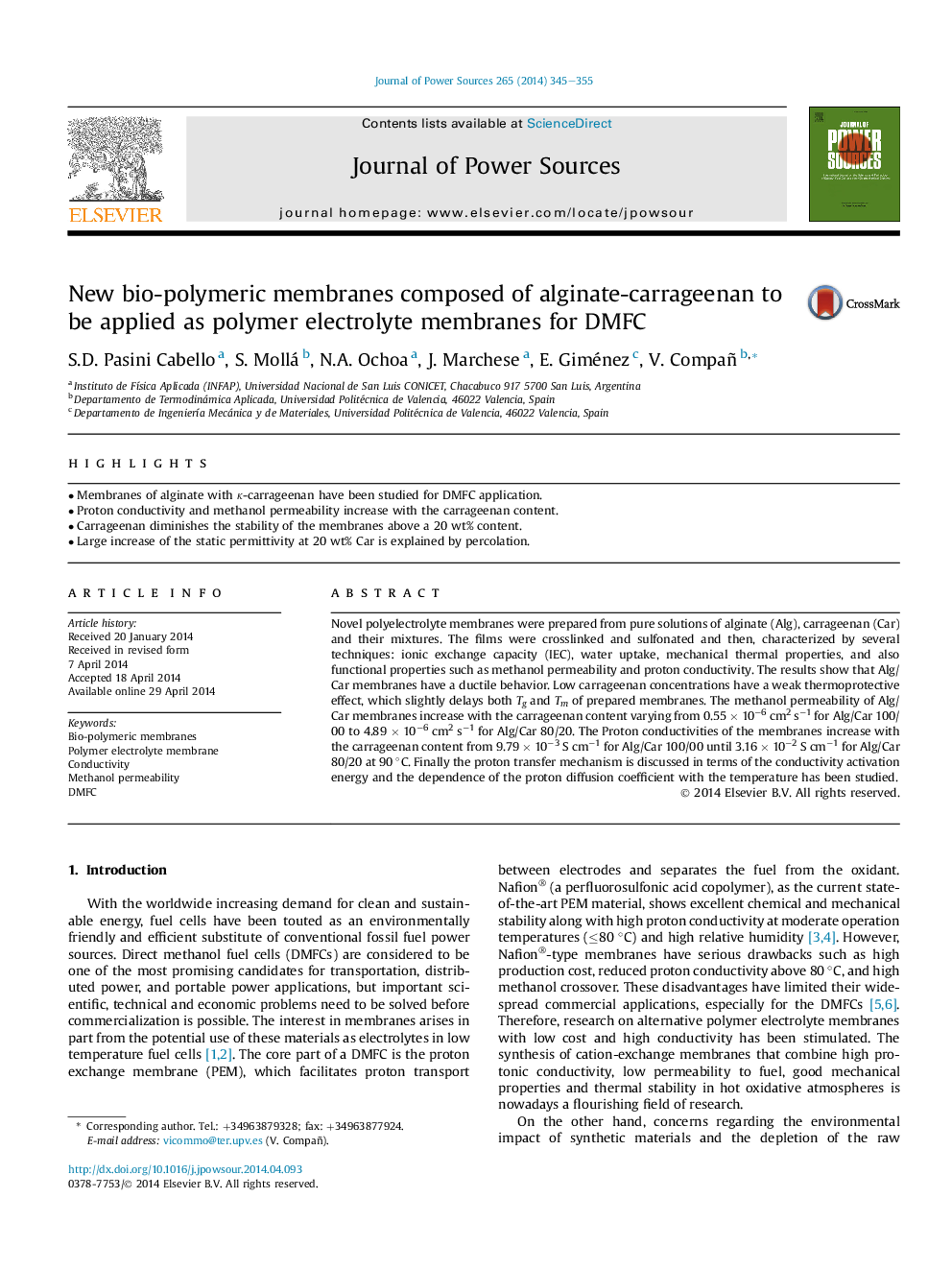| Article ID | Journal | Published Year | Pages | File Type |
|---|---|---|---|---|
| 1284038 | Journal of Power Sources | 2014 | 11 Pages |
•Membranes of alginate with κ-carrageenan have been studied for DMFC application.•Proton conductivity and methanol permeability increase with the carrageenan content.•Carrageenan diminishes the stability of the membranes above a 20 wt% content.•Large increase of the static permittivity at 20 wt% Car is explained by percolation.
Novel polyelectrolyte membranes were prepared from pure solutions of alginate (Alg), carrageenan (Car) and their mixtures. The films were crosslinked and sulfonated and then, characterized by several techniques: ionic exchange capacity (IEC), water uptake, mechanical thermal properties, and also functional properties such as methanol permeability and proton conductivity. The results show that Alg/Car membranes have a ductile behavior. Low carrageenan concentrations have a weak thermoprotective effect, which slightly delays both Tg and Tm of prepared membranes. The methanol permeability of Alg/Car membranes increase with the carrageenan content varying from 0.55 × 10−6 cm2 s−1 for Alg/Car 100/00 to 4.89 × 10−6 cm2 s−1 for Alg/Car 80/20. The Proton conductivities of the membranes increase with the carrageenan content from 9.79 × 10−3 S cm−1 for Alg/Car 100/00 until 3.16 × 10−2 S cm−1 for Alg/Car 80/20 at 90 °C. Finally the proton transfer mechanism is discussed in terms of the conductivity activation energy and the dependence of the proton diffusion coefficient with the temperature has been studied.
